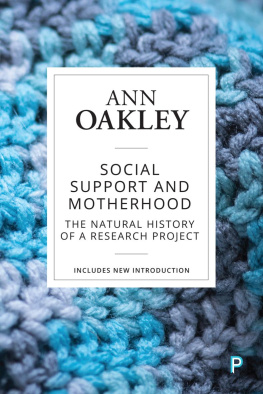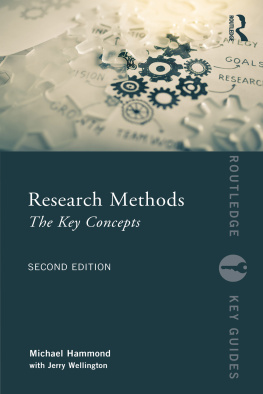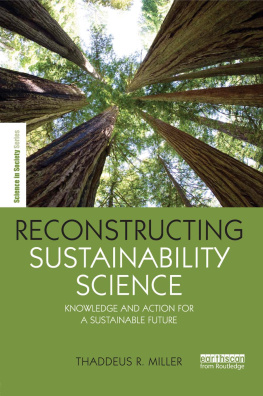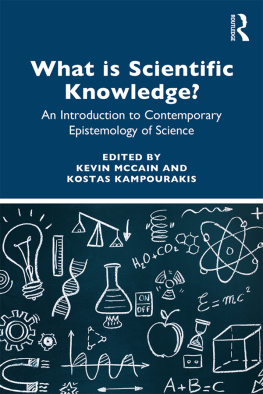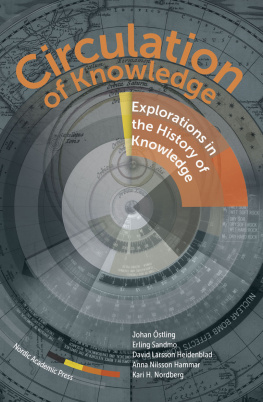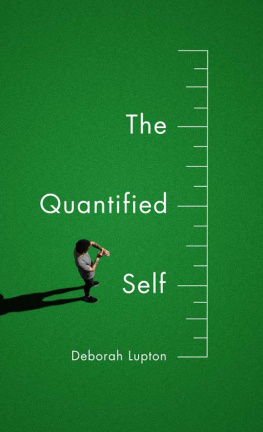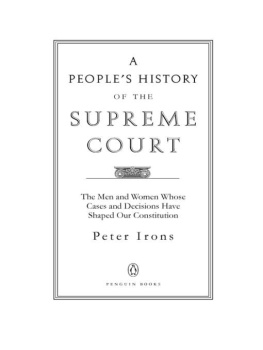Court Deborah - A Brief History of Knowledge for Social Science Researchers
Here you can read online Court Deborah - A Brief History of Knowledge for Social Science Researchers full text of the book (entire story) in english for free. Download pdf and epub, get meaning, cover and reviews about this ebook. year: 2020, publisher: Taylor & Francis Group, genre: Religion. Description of the work, (preface) as well as reviews are available. Best literature library LitArk.com created for fans of good reading and offers a wide selection of genres:
Romance novel
Science fiction
Adventure
Detective
Science
History
Home and family
Prose
Art
Politics
Computer
Non-fiction
Religion
Business
Children
Humor
Choose a favorite category and find really read worthwhile books. Enjoy immersion in the world of imagination, feel the emotions of the characters or learn something new for yourself, make an fascinating discovery.

- Book:A Brief History of Knowledge for Social Science Researchers
- Author:
- Publisher:Taylor & Francis Group
- Genre:
- Year:2020
- Rating:5 / 5
- Favourites:Add to favourites
- Your mark:
- 100
- 1
- 2
- 3
- 4
- 5
A Brief History of Knowledge for Social Science Researchers: summary, description and annotation
We offer to read an annotation, description, summary or preface (depends on what the author of the book "A Brief History of Knowledge for Social Science Researchers" wrote himself). If you haven't found the necessary information about the book — write in the comments, we will try to find it.
Court Deborah: author's other books
Who wrote A Brief History of Knowledge for Social Science Researchers? Find out the surname, the name of the author of the book and a list of all author's works by series.
A Brief History of Knowledge for Social Science Researchers — read online for free the complete book (whole text) full work
Below is the text of the book, divided by pages. System saving the place of the last page read, allows you to conveniently read the book "A Brief History of Knowledge for Social Science Researchers" online for free, without having to search again every time where you left off. Put a bookmark, and you can go to the page where you finished reading at any time.
Font size:
Interval:
Bookmark:
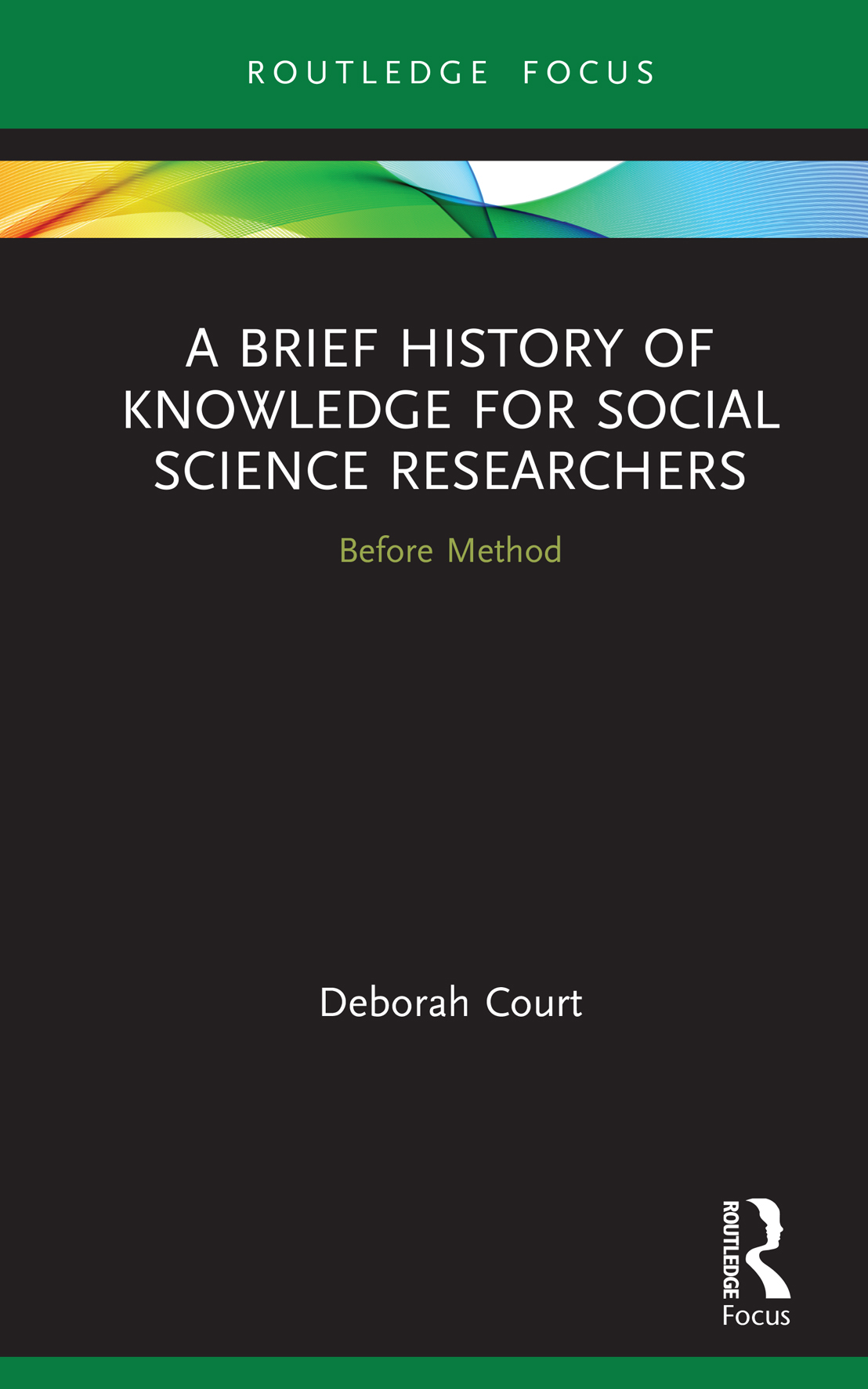
A Brief History of Knowledge for Social Science Researchers outlines a history of knowledge from Ancient Greece to present day, in Europe and the Western world. This outline provides the basis for understanding where various research methods originate, and their epistemological, historical, political and social roots.
This book provides social science researchers with an understanding of how research methods developed, and how their truth criteria, and what is accepted as knowledge, spring from human history. Research is often reduced to data collection, results and publication in the stressful, results-oriented academic environment. But research is a human enterprise, a product of both individual creativity and historical, political and social conditions. This book will focus on how shared research criteria (as we know them today) were developed through the work and thought of philosophers, social activists and researchers.
This book will be useful for graduate and post-graduate students, particularly those studying Research Methods, and Philosophy of Science courses; and for experienced social science researchers who wish to understand how research methods have developed in human history.
Deborah Court is an associate professor of Education at Bar-Ilan University and research consultant at the Arab Academic College in Israel. She conducts ethnographic research in multicultural and inter-religious settings. She is keenly aware of the importance for graduate students and experienced researchers to understand the epistemological underpinnings of research methods.
First published 2020
by Routledge
2 Park Square, Milton Park, Abingdon, Oxon OX14 4RN
and by Routledge
52 Vanderbilt Avenue, New York, NY 10017
Routledge is an imprint of the Taylor & Francis Group, an informa business
2020 Deborah Court
The right of Deborah Court to be identified as author of this work has been asserted by her in accordance with sections 77 and 78 of the Copyright, Designs and Patents Act 1988.
All rights reserved. No part of this book may be reprinted or reproduced or utilised in any form or by any electronic, mechanical, or other means, now known or hereafter invented, including photocopying and recording, or in any information storage or retrieval system, without permission in writing from the publishers.
Trademark notice: Product or corporate names may be trademarks or registered trademarks, and are used only for identification and explanation without intent to infringe.
British Library Cataloguing-in-Publication Data
A catalogue record for this book is available from the British Library
Library of Congress Cataloging-in-Publication Data
A catalog record has been requested for this book
ISBN: 978-0-367-37079-4 (hbk)
ISBN: 978-0-429-35260-7 (ebk)
Typeset in Times New Roman
by codeMantra
When I was doing my doctoral studies in education at the University of British Columbia in the late 1980s, I was fortunate to have as my advisor the late Professor LeRoi Daniels, a philosopher and epistemologist who introduced me to the works of Ludwig Wittgenstein, Gilbert Ryle, Karl Popper, Thomas Kuhn, and other writers on philosophy of science and philosophy of knowledge. Thank you, Roi, wherever you may be. I took the philosophical bent with which you imbued all your students forward to my own research and teaching.
This little book grew out of a doctoral course I taught for many years, in which I introduced doctoral students to the history of knowledge and asked them to reflect on their own decisions about method, methodology and theory, through the lens of epistemology and the roots and implications of different research paradigms. While some thought it a waste of time please, let me get on with my data collection! others came to it like thirsty plants. Rushed and pressured to make methodological decisions and complete their dissertations, they were given little time to reflect, and to experience the intellectual enjoyment of learning about, and seeing themselves as part of, the great human story of the development of research knowledge.
Before method, we need to know from whence we came. I hope this book, like an album of family photographs, will help to show how each of us is part of the continuing, unfolding story of the search for questions, answers, knowledge and meaning.
What does it mean to think about research? We need to do research, right? We need to learn statistical tests, concepts and methods of analysis; how to build and validate questionnaires; test hypotheses and analyze results. We need to learn how to conduct interviews and observations, analyze documents and write a research report! And theory! We need a theoretical framework! So much to do; who has time to think about research?
This little book provides an opportunity to do just that: to slow down and explore some essential questions. The most basic: what is knowledge, to which all research strives to contribute? Where does knowledge come from, how does it develop? What kinds of knowledge come from research, and how does knowledge change as a result of research? What underlies methodology and method, research tools and procedures, methods of analysis, use of theory, construction and testing of theory? How do methodologies and theories develop, change and advance? And what is theory, anyway? Where does it come from?
Knowledge, research methodologies and theory are a moving stream, flowing ever forward. Rocks in the way may temporarily impede the flow, but water is inexorable; it will find or make a path and continue to progress. Clearly people are responsible for the development of knowledge. People are the products of their time and place; their culture and its knowledge, standards and beliefs. Research is a human enterprise, a product of both individual creativity and historical, political and social conditions. Great researchers (and here we intend philosophers, philosophers of science, researchers of the sciences and the social sciences) are those who, while necessarily working within available resources and conditions, succeed in thinking beyond their time and place, imagining beyond current knowledge, breaking boundaries and genuinely moving knowledge forward. Sometimes this means being very brave.
As a way to illustrate these important understandings, we will begin with a Gallery of Heroes people who made particular contributions to advance the research enterprise. This is not intended to be in any way a comprehensive list, for of course there could never be such a list. These brief portraits provide examples of how one persons work can move our collective understanding forward and will serve to awaken questions that will be explored throughout the book.
While the orthodoxy of his time stated that the stable earth is the center of the universe, and that the sun, planets and stars move around the earth (the geocentric theory), the alternate idea that the earth is a planet which rotates on its axis and revolves around the sun (the heliocentric theory), had been proposed hundreds of years before by Greek scientists such as Pythagoras. Copernicus contribution was that he used data, mathematical measurements from the simple instruments available at the time, to give quantitative substantiation to this idea. This in effect created a new, measurement-based argument for an old, theoretical idea. Copernicus was not able to prove his argument; rather, he substantiated it mathematically. Unfortunately, the idea that the earth was the center still held sway; there were epistemological, philosophical, religious, theological, scriptural, physical, mechanical, astronomical and empirical objections (Finocchiaro 2010: xiv) to Copernicus work! Though Copernicus made fairly modest claims in his published work, his book was nevertheless banned by the Church shortly after he died. Copernicus synthesizing of observational data in effect launched modern astronomy.
Font size:
Interval:
Bookmark:
Similar books «A Brief History of Knowledge for Social Science Researchers»
Look at similar books to A Brief History of Knowledge for Social Science Researchers. We have selected literature similar in name and meaning in the hope of providing readers with more options to find new, interesting, not yet read works.
Discussion, reviews of the book A Brief History of Knowledge for Social Science Researchers and just readers' own opinions. Leave your comments, write what you think about the work, its meaning or the main characters. Specify what exactly you liked and what you didn't like, and why you think so.

